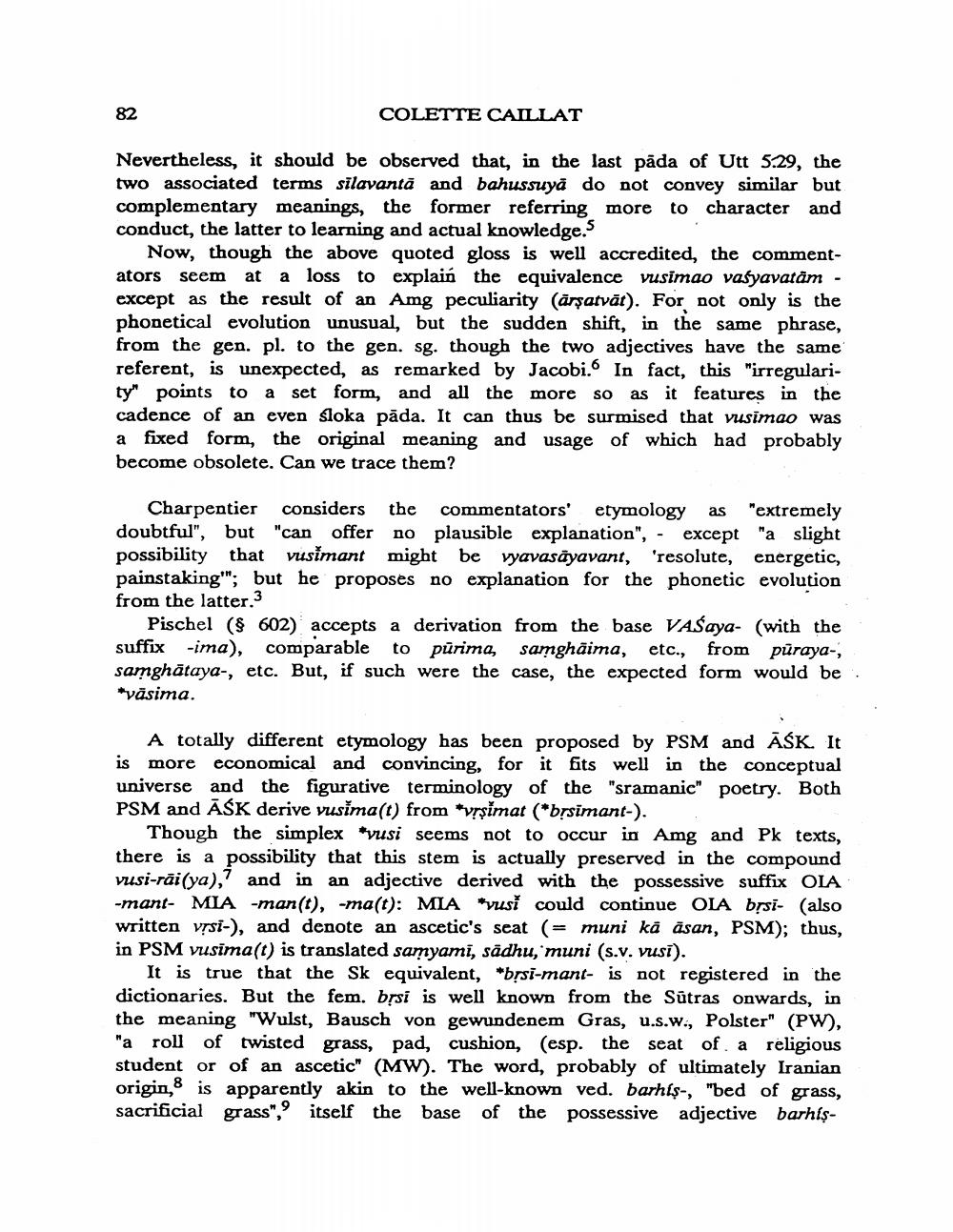Book Title: Esa Dhamme Vusunao Such Is Law Of Sage Author(s): Colette Caillat Publisher: Colette Caillat View full book textPage 2
________________ 82 COLETTE CAILLAT Nevertheless, it should be observed that, in the last pada of Utt 5.29, the two associated terms silavanta and bahussuyā do not convey similar but complementary meanings, the former referring more to character and conduct, the latter to learning and actual knowledge. Now, though the above quoted gloss is well accredited, the commentators seem at a loss to explain the equivalence vusimao vasyavatām - except as the result of an Amg peculiarity (ärşatvāt). For not only is the phonetical evolution unusual, but the sudden shift, in the same phrase, from the gen. pl. to the gen. sg. though the two adjectives have the same referent, is unexpected, as remarked by Jacobi. In fact, this "irregularity" points to a set form, and all the more so as it features in the cadence of an even sloka pāda. It can thus be surmised that vusimao was a fixed form, the original meaning and usage of which had probably become obsolete. Can we trace them? Charpentier considers the commentators' etymology as "extremely doubtful", but "can offer no plausible explanation", - except "a slight possibility that vusímant might be vyavasāyavant, 'resolute, energetic, painstaking'"; but he proposes no explanation for the phonetic evolution from the latter.3 Pischel ($ 602) accepts a derivation from the base VAŚaya- (with the suffix -ima), comparable to pūrimą, samghāima, etc., from puraya-, samghātaya-, etc. But, if such were the case, the expected form would be. *väsima. A totally different etymology has been proposed by PSM and AŚK. It is more economical and convincing, for it fits well in the conceptual universe and the figurative terminology of the "sramanic" poetry. Both PSM and ĀŠK derive vusima(t) from *vrşimat (*bsimant-). Though the simplex *vusi seems not to occur in Amg and Pk texts, there is a possibility that this stem is actually preserved in the compound vusi-rāi(ya), and in an adjective derived with the possessive suffix OLA -mant- MIA -man(t), -ma(t): MIA *vust could continue OLA brsi- (also written vșsi-), and denote an ascetic's seat (= muni kā āsan, PSM); thus, in PSM vusima(t) is translated samyami, sadhu, muni (s.v. vusi). It is true that the Sk equivalent, *brsi-mant- is not registered in the dictionaries. But the fem. bļsi is well known from the Sūtras onwards, in the meaning "Wulst, Bausch von gewundenem Gras, u.s.w., Polster" (PW), "a roll of twisted grass, pad, cushion, (esp. the seat of a religious student or of an ascetic" (MW). The word, probably of ultimately Iranian origin, is apparently akin to the well-known ved. barhiş-, "bed of grass, sacrificial grass", itself the base of the possessive adjective barhisPage Navigation
1 2 3 4 5 6 7 8 9 10 11 12 13 14 15 16
